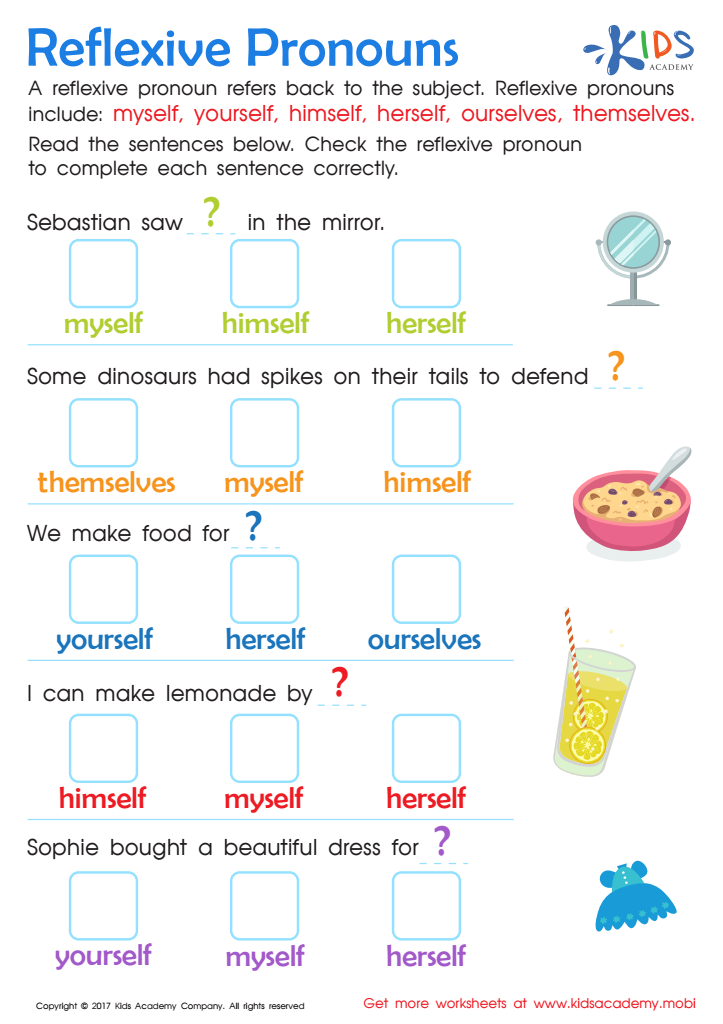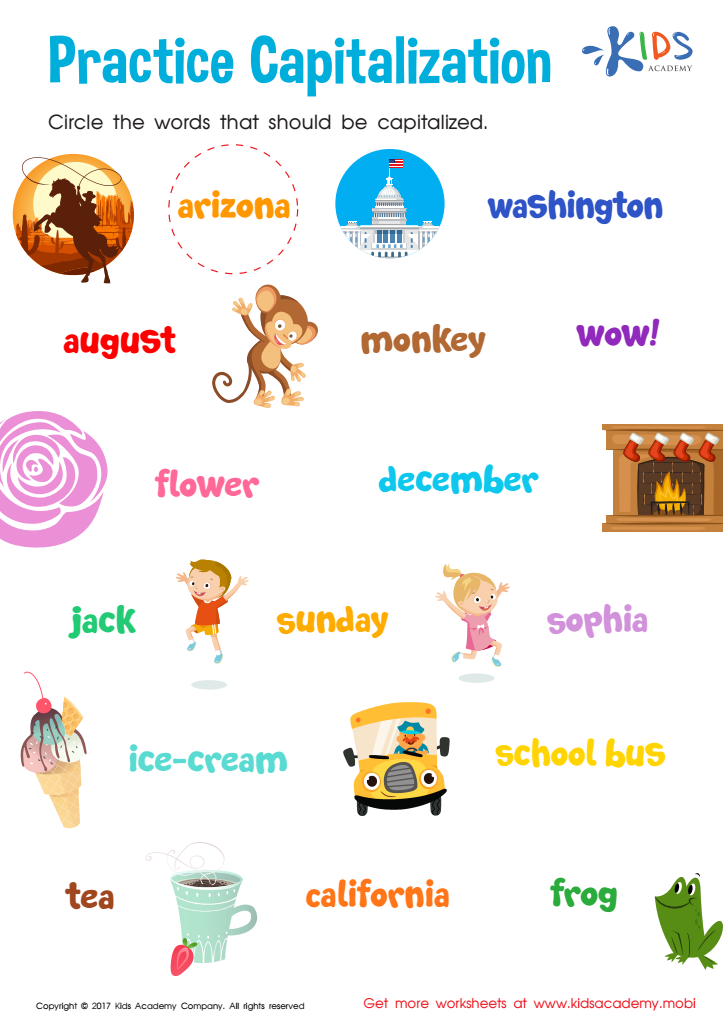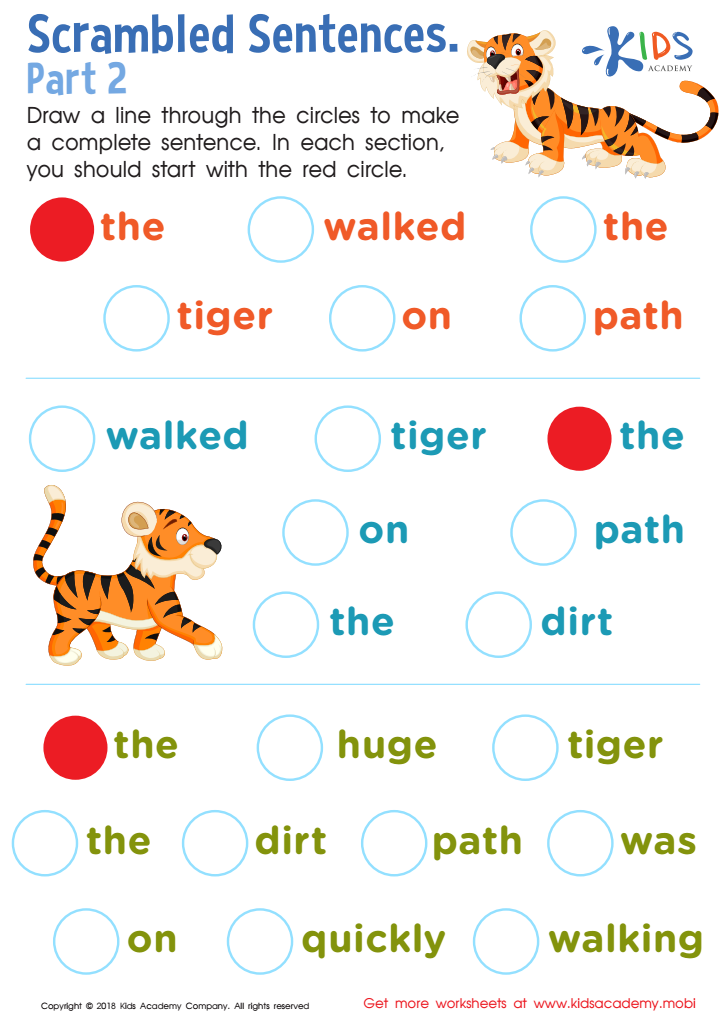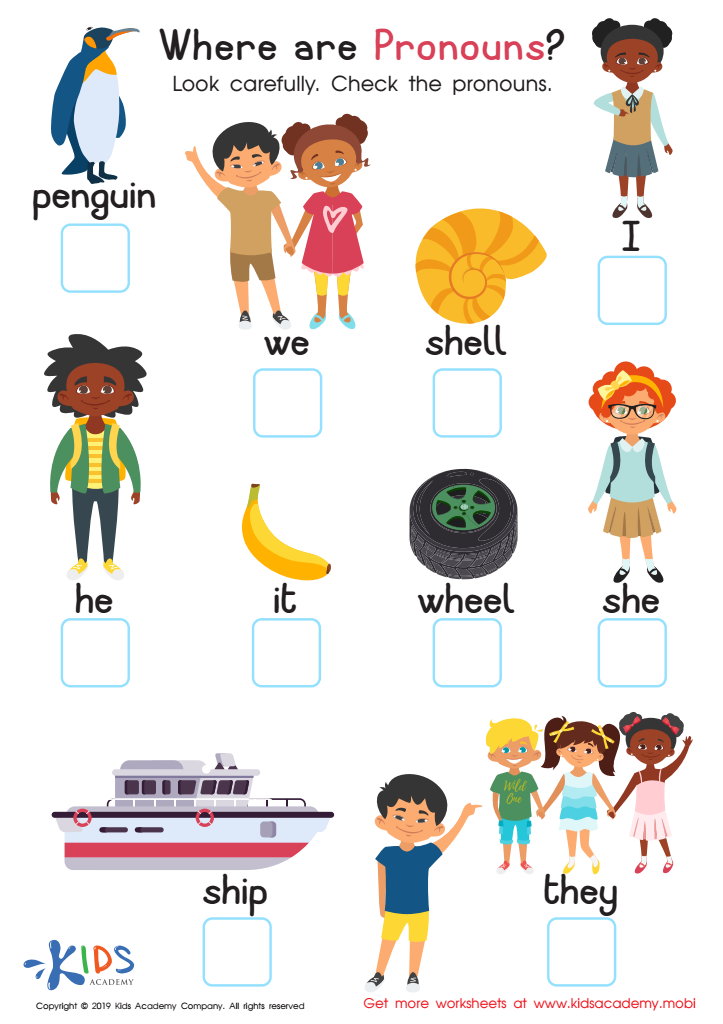Grammar skills improvement Normal Writing Worksheets for Ages 5-9
5 filtered results
-
From - To
Enhance your child's writing with our Grammar Skills Improvement: Normal Writing Worksheets tailored for ages 5-9. These engaging, educational worksheets are designed to help young learners grasp essential grammar concepts effortlessly. Through a variety of age-appropriate activities, children will practice sentence structure, punctuation, verb tenses, parts of speech, and more. Whether at home or in the classroom, these resources make learning grammar fun and effective. Empower your child with the grammar skills needed for strong writing foundations. Discover our free, expert-crafted worksheets and watch their confidence and competence soar! Visit Kids Academy to get started.


Reflexive Pronouns Worksheet


Practice Capitalization Printable


Scrambled Sentences Part 2 Worksheet


Adjectives Worksheet


Where Are Pronouns? Worksheet
Parents and teachers should place a strong emphasis on improving grammar skills for children aged 5-9 for several key reasons. First, this early stage of life is a critical period for language acquisition; children are highly receptive to learning the rules and structures that govern effective communication. Developing solid grammar skills forms the foundation for all future writing and speaking, enabling children to express themselves clearly and effectively.
Moreover, good grammar translates into better reading comprehension. When children understand sentence structure, punctuation, and the proper use of words, they can better grasp the meaning of the texts they encounter. This comprehension is crucial for academic success not just in language arts but across all subjects, as reading and understanding instructions, problems, and content are integral parts of learning.
Additionally, strong grammar and communication skills boost a child’s confidence. Being able to articulate thoughts clearly helps improve self-esteem and social interactions, which are vital for personal development. Teachers and parents acting as role models and guides in this educational journey can create a supportive environment where children feel encouraged to practice and improve.
In summary, early grammar skills are the building blocks for effective communication, academic achievement, and self-confidence, making their improvement essential during the formative years of ages 5-9.
 Assign to My Students
Assign to My Students



















